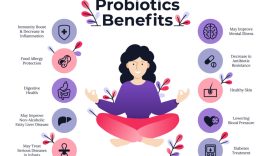From Plate to Health: Crafting Your Ideal Meal

Understanding Nutritional Needs:
Importance of Balanced Diet
A balanced diet is fundamental for maintaining overall health and well-being. It serves as the foundation upon which optimal physical and mental health can be built. Think of it as constructing a sturdy building; without a strong base, everything else may crumble. When Sarah, a busy professional, shifted from a fast-food diet to a balanced plate filled with fruits, vegetables, lean proteins, and whole grains, she noticed a dramatic increase in her energy levels and mood. This change didn’t require a complete overhaul—small adjustments led to significant benefits. Key aspects of a balanced diet include:
- From Plate to Health: Crafting Your Ideal Meal
- Understanding Nutritional Needs:
- Importance of Balanced Diet
- Nutrients for Optimal Health
- Building your Plate:
- Main Components of a Healthy Meal
- Portion Control Tips
- Functional Foods:
- Incorporating Superfoods
- Benefits of Phytonutrients
- Meal Planning Strategies:
- Batch Cooking and Prep
- Mindful Eating Practices
- Eating for Specific Goals:
- Weight Management
- Performance Enhancement
- Mind-Body Connection:
- Emotional Eating Patterns
- Stress Management through Food
- All About Hydration:
- Importance of Water Intake
- Hydrating Food Choices
- Variety: Incorporating different foods ensures a range of nutrients.
- Proportions: Balancing macronutrients like carbohydrates, proteins, and fats is crucial.
- Micronutrients: Vitamins and minerals play critical roles in bodily functions.
Nutrients for Optimal Health
To maintain peak health, understanding specific nutrients is vital. Here’s a quick breakdown:
- Proteins: Essential for muscle repair and growth.
- Carbohydrates: The body’s primary energy source; whole grains are the best choice.
- Healthy Fats: Necessary for brain function; think avocados and nuts.
- Vitamins and Minerals: Support everything from immune function to bone health.
Incorporating a range of these nutrients not only fuels the body but enhances mental clarity and emotional stability. With a balanced diet, individuals can better manage stress, fight fatigue, and improve overall quality of life.
Building your Plate:
Main Components of a Healthy Meal
Now that you’ve grasped the importance of a balanced diet, let’s dive deeper into constructing a healthy meal. Building your plate mindfully can transform your eating habits and ensure you’re getting the nutrients you need. A well-rounded meal typically includes:
- Fruits and Vegetables: Aim for half your plate to be composed of colorful produce. These foods are packed with fiber, vitamins, and minerals.
- Proteins: Include lean sources like chicken, fish, legumes, or tofu to aid in muscle growth and repair.
- Whole Grains: Opt for brown rice, quinoa, or whole wheat bread, ensuring you fuel your body with long-lasting energy.
- Healthy Fats: Don’t shy away from sources like olive oil, avocados, and nuts, which are essential for brain health.
For example, a vibrant salad topped with grilled chicken, quinoa, and a drizzle of olive oil combines these elements beautifully.
Portion Control Tips
While knowing what to put on your plate is essential, portion control plays a critical role in maintaining a healthy balance. It’s easy to overeat, especially with tempting foods around. Here are some practical tips to keep portions in check:
- Use Smaller Plates: This visual trick can help trick your brain into feeling satisfied with less food.
- Practice Mindful Eating: Take your time with each bite. Enjoying your meal can help prevent overeating.
- Visual Cues: Fill half your plate with vegetables, one quarter with protein, and the remaining quarter with whole grains.
By blending these strategies into your daily routine, you can create nourishing meals that support both physical and mental well-being.
Functional Foods:
Incorporating Superfoods
Following a well-structured meal plan naturally leads us to the exciting realm of functional foods. Among these, superfoods stand out for their exceptional health benefits. These nutrient-rich powerhouses can easily be incorporated into your daily diet, elevating your meals to new heights. Consider adding superfoods like:
- Quinoa: A complete protein packed with essential amino acids, making it a fantastic choice for vegetarians.
- Blueberries: These tiny berries are filled with antioxidants, which can help combat oxidative stress.
- Kale: This leafy green is not only versatile but also loaded with vitamins A, C, and K.
- Chia Seeds: High in omega-3 fatty acids and fiber, they can be sprinkled on yogurt or added to smoothies for a nutritional boost.
For instance, when Mark included a morning smoothie with spinach, banana, and chia seeds, he noticed significant improvements in his energy levels throughout the day.
Benefits of Phytonutrients
While superfoods are enticing, let’s not overlook the power of phytonutrients. These naturally occurring compounds found in plants offer an array of health benefits that contribute to overall well-being. Some key advantages include:
- Antioxidant Properties: They help protect cells from damage and reduce inflammation.
- Improved Immune Function: Many phytonutrients support and strengthen the immune system.
- Heart Health: Compounds like flavonoids contribute to cardiovascular health by promoting blood circulation.
By embracing functional foods rich in phytonutrients, individuals can bolster their health strategies, allowing them to feel more vibrant and energized daily. Integrating these foods into meals can make a significant difference in one’s overall health journey.
Meal Planning Strategies:
Batch Cooking and Prep
With a solid understanding of the benefits of functional foods, it’s time to look at effective meal planning strategies that make eating well manageable. One powerful technique is batch cooking. This practice not only saves time but also ensures that healthy options are always within reach. Imagine a Sunday afternoon spent preparing meals. By dedicating just a few hours to cooking, you can create:
- Big Batches of Grains: Cook a large pot of brown rice or quinoa to use throughout the week.
- Roasted Vegetables: Toss seasonal veggies with olive oil, salt, and pepper, then roast them for a flavorful addition to any meal.
- Protein Packs: Grill or bake chicken, fish, or tofu in advance, ready to be added to salads, wraps, or stir-fries.
For instance, when Laura began batch cooking, her weeknight dinners became stress-free. She simply reheated pre-prepared meals and enjoyed a balanced diet without the evening scramble.
Mindful Eating Practices
Combining delicious food with mindful eating practices can take your nutritional journey to the next level. Being present during meals allows you to truly savor your food and understand when your body is satisfied. Some tips for practicing mindful eating include:
- Eliminating Distractions: Put down your phone and turn off the TV. Focus on your food.
- Chewing Slowly: Taking the time to chew each bite helps with digestion and makes you more aware of flavors.
- Listening to Your Body: Pay attention to hunger cues. Stop eating when you’re full, even if there’s food left on your plate.
By incorporating these mindful strategies into your meal planning, you can cultivate a more positive relationship with food that enhances both satisfaction and well-being, ensuring that each mealtime is not just about nutrition but also about enjoyment.
Eating for Specific Goals:
Weight Management
Building on your meal planning strategies, let’s take a closer look at how to tailor your eating habits to specific objectives, starting with weight management. Many individuals embark on weight loss journeys, and a nutrient-rich diet is key to success. For instance, when James decided to shed some extra pounds, he utilized these effective strategies:
- Calorie Awareness: Tracking daily intake helped him stay within his caloric limits while focusing on nutrient-dense foods, rather than empty calories.
- High Fiber Foods: Incorporating foods like whole grains, fruits, and vegetables helped him feel fuller for longer, reducing unnecessary snacking.
- Mindful Portions: Using smaller plates allowed James to enjoy his favorite meals without overeating.
With these practices, he found his energy levels remained high, aiding in his fitness routines as well.
Performance Enhancement
For those engaged in athletic pursuits, eating for performance enhancement becomes crucial. The right nutrients can significantly impact stamina, strength, and recovery. Consider these tips for optimizing your diet for peak performance:
- Carbohydrates for Energy: Carbs are the body’s primary fuel source. Include complex options like oats, sweet potatoes, and brown rice before workouts.
- Post-Workout Proteins: Consuming protein after exercise aids muscle recovery. Options like Greek yogurt, protein shakes, or chicken can do wonders.
- Hydration: Staying hydrated helps maintain performance levels. Add electrolytes during intense workouts to replenish what you lose.
By addressing both weight management and performance enhancement through specific eating strategies, individuals can achieve their goals while feeling their best and energized for daily challenges.
Mind-Body Connection:
Emotional Eating Patterns
As individuals pursue their health and fitness goals, it’s vital to explore the profound mind-body connection, particularly regarding emotional eating patterns. Many people find themselves turning to food for comfort during tough times or moments of stress. For example, when Amy faced a challenging week at work, she often gravitated towards sugary snacks and comfort foods. It’s a common dilemma: stress can trigger cravings for quick sources of gratification. Recognizing this as a pattern is the first step toward change. Here are some strategies to counteract emotional eating:
- Identify Triggers: Keeping a journal can help pinpoint when and why you reach for certain foods.
- Seek Alternatives: Instead of sweets, try healthier snacks like fruit or nuts, which can satisfy cravings without the guilt.
- Mindful Reflection: Before reaching for a snack, take a moment to evaluate if you’re truly hungry or just looking for comfort.
Stress Management through Food
Addressing stress management through food can help create healthier eating habits. Practicing stress-reducing techniques alongside mindful eating can lead to better decisions. Consider these approaches:
- Nutrient-Rich Foods: Foods rich in omega-3 fatty acids, like salmon and walnuts, can help curb anxiety.
- Herbal Teas: Drinking calming teas like chamomile or green tea can create a soothing routine.
- Balanced Meals: Preparing meals with the right balance of proteins, fats, and complex carbs can stabilize blood sugar and mood.
By understanding the emotional triggers behind eating and employing stress management techniques, individuals can cultivate a healthier relationship with food, ultimately enhancing their overall well-being.
All About Hydration:
Importance of Water Intake
Continuing our journey toward wellness, hydration plays a fundamental role in maintaining good health. Water is essential for nearly every bodily function, from regulating temperature to delivering nutrients. Yet, many individuals overlook proper water intake in their daily routines. For instance, when Mike started a new fitness regimen, he noticed a huge difference in his endurance after increasing his water consumption. Here’s why staying hydrated matters:
- Boosts Energy: Even mild dehydration can lead to fatigue and low energy levels.
- Supports Digestion: Water is essential for breaking down food and aiding in nutrient absorption.
- Enhances Mood: Proper hydration contributes to cognitive function and emotional well-being.
Aim to drink at least 8 glasses of water a day, adjusting depending on activity levels and climate.
Hydrating Food Choices
In addition to drinking water, incorporating hydrating foods into your diet can enhance your overall fluid intake. Many fruits and vegetables are packed with water, making them an excellent choice. Consider adding:
- Watermelon: As its name suggests, watermelon is about 92% water and a delicious summer snack.
- Cucumbers: Refreshing and crisp, cucumbers contain about 95% water and are perfect in salads or as a dip.
- Strawberries: These juicy berries not only provide hydration but also deliver essential vitamins.
By combining adequate water intake with hydrating foods, individuals can ensure they stay energized and healthy, paving the way for overall well-being and vitality.





